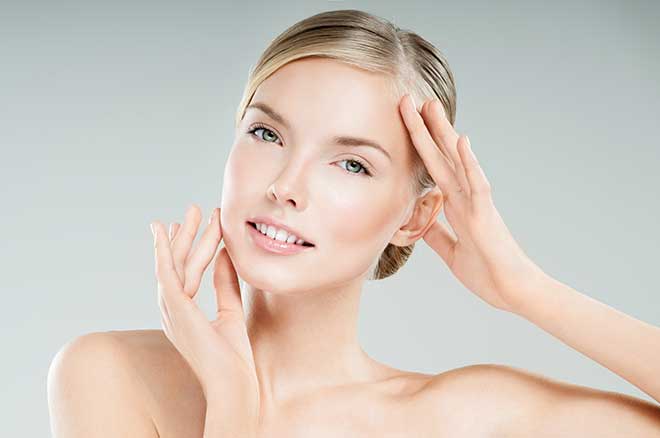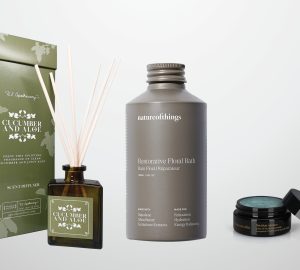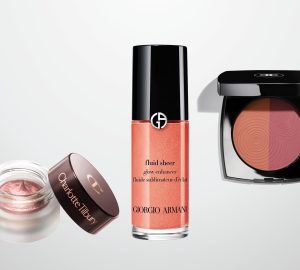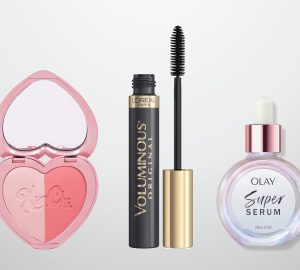Let’s face it—we can’t all be running off to the esthetician all the time. And it may not even be necessary. With a few sensible tips from the experts, home skin care can be quite effective. Here, Dr. Brock Ridenour of Ridenour Plastic Surgery and esthetician and Soft Surroundings beauty specialist Lauren Niewoehner share their thoughts and help us sort out myth from fact when it comes to skin care products and practices.
How often should I have a facial?
Ridenour suggests that people with thick, oily skin or acne should consider a facial every four weeks. But if the skin is thin and dry, every six to eight weeks should suffice. Niewoehner says, “At a minimum, have one seasonally to address weather-related skin concerns.” A facial helps with deep cleansing, exfoliation, hydration and more, she says.
What ingredients should you look for in a face cream?
Niewoehner says what products don’t include is just as important as what they do. “Stay away from those with artificial colors, fragrances, preservatives and stabilizers because they can have a negative long-term effect,” she says. Look for products that are hypoallergenic and free of parabens, synthetics and fragrances. Choose those that contain antioxidants like green tea and vitamins C and E, retinol (aka vitamin A), hyaluronic acid and coenzyme Q10. Ridenour adds that retinol creams should be applied at night and can be reinforced by a moisturizer containing niacinamide or ceramide to maintain the skin’s natural barrier.
What about Biore and charcoal products?
Detoxifying the skin is important, and charcoal products can be helpful in absorbing oil, removing environmental pollutants and purifying pores, Niewoehner says. (Bioré strips contain a small amount of charcoal.) Ridenour says he doesn’t care for pore strips because, “there are no scientific studies I am aware of that support the use of charcoal.”
Do gadgets work?
Home gadgets are typically not as potent as those used by dermatologists and skin care specialists, but they can help tighten, firm and brighten. They also help with product penetration, Niewoehner says, recommending the Osmotics 3 in 1 Ageless Facial Enhancer, a multitasking device purported to tighten, firm and brighten. Ridenour points out that most home devices, including home-use lasers, “lack the intensity and power to effect real change in the skin. They require an excessive number of treatments for only a minor reward,” he says.
When is the best time to wash your face, and with what?
“Believe it or not,” Ridenour says, “washing your face is not very essential. In fact, many people do harm to their skin by washing with soaps, using hot water or rubbing the skin too aggressively.” Niewoehner, however, says oily skin may need cleaning morning and evening and even after a workout. Both skin care experts recommend a milky cleanser for normal to dry skin. Niewoehner adds that gel is better for normal to oily complexions.
What about toner?
“Most skin care lines have moved away from traditional toners that contain alcohol because they tend to strip the skin of its natural ability to function,” Niewoehner says. She recommends hydrating mists like Rodial Dragons Blood Hyaluronic Tonic (containing hyaluronic acid, vitamin B3 and rose water) and Jane Iredale’s Pommist, containing pomegranate, white tea and rosemary leaf. “I call it my happy spray,” Niewoehner says.
What does ‘sensitive skin’ really mean?
Delicate/thinner skin can be due to genetics, age, gender and race, Niewoehner says. But Ridenour says he believes patients cause their own problems by applying too many products with active ingredients (like retinoids, ascorbic acid and alpha hydroxyl acids), by excessive exfoliation or by the use of Clarisonic brushes. And sometimes, he says, sensitive skin is the result of using moisturizers with lanolin or preservatives. Niewoehner says when there is a sensitivity issue, using products free of chemicals, fragrance and preservatives is particularly important.
Is there really such thing as an anti-aging product? Or is it more to do with DNA?
The only true anti-aging product for the skin is sunscreen, Ridenour says. Properly applied, sunscreen is the best way to avoid aging of the skin. “There are a lot of exaggerated claims about anti-aging products that promote collagen, boost oxygen in the skin, improve firmness and diminish wrinkles,” he says. “Unfortunately, the FDA does not regulate these products, and many claims are based on results in a petri dish and not human subjects.” Ridenour says he considers retinol, antioxidant formulations, barrier creams and sunscreens to be the most proven anti-aging products.
Do eyes need their own product?
“Eyes show the first signs of aging and are the windows to our soul,” Niewoehner says. “Skin around the eye is 10 times thinner and typically drier than skin on the face. I like to to use a lighter eye serum in the morning and something heavier, creamier and more emollient at night.” Using an eye sunscreen or powder mineral that you can sweep over the eye is important, she says, as well as products that help address fine lines, puffiness and dark circles. Look for those containing skin brighteners, antioxidants and caffeine, she adds.
What is your No.1 tip for healthy, young-looking skin?
Take good care of it, Niewoehner says. “Start early, be consistent with good skin care regimens and protect with sunscreen 365 days a year.” Ridenour stresses that a healthy, balanced lifestyle is the most important factor: “Exercise, get eight hours of sleep per night, control stress, eat foods rich in antioxidant micronutrients, limit sugary foods and foods prepared on the grill, use anti-inflammatory spices, and avoid smoking and excess alcohol,” he concludes.








